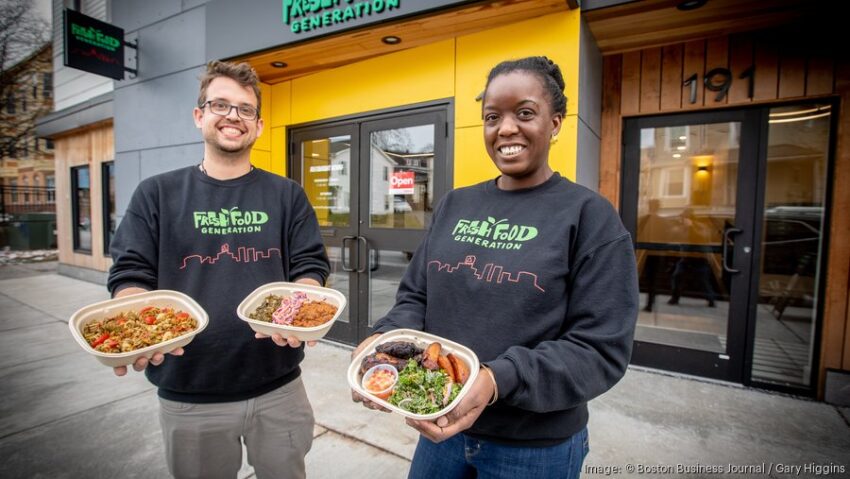
Fresh Food Generation: Cultivating a Healthier Future
The concept of a fresh food generation is gaining traction as consumers become increasingly aware of the importance of healthy eating and sustainable food systems. This movement encompasses a wide range of initiatives, from supporting local farmers and reducing food waste to promoting plant-based diets and innovative agricultural technologies. The fresh food generation is not just about what we eat; it’s about how our food is produced, distributed, and consumed. This shift towards prioritizing fresh, whole foods is driven by concerns about public health, environmental sustainability, and social equity.
Understanding the Fresh Food Movement
The fresh food generation represents a significant departure from the industrialized food system that has dominated the 20th and early 21st centuries. This system, while efficient in producing large quantities of food, has often come at the expense of nutritional quality, environmental health, and the livelihoods of small-scale farmers. The movement towards fresh food seeks to address these issues by emphasizing:
- Local and Seasonal Eating: Prioritizing foods grown in the local area and consumed during their peak season reduces transportation costs and environmental impact while ensuring freshness and flavor.
- Sustainable Agriculture: Employing farming practices that minimize environmental harm, such as organic farming, regenerative agriculture, and permaculture, protects soil health, biodiversity, and water resources.
- Reducing Food Waste: Addressing the significant problem of food waste, which contributes to greenhouse gas emissions and economic losses, through improved storage, composting, and food donation programs.
- Promoting Plant-Based Diets: Encouraging the consumption of more fruits, vegetables, legumes, and whole grains, which are generally more sustainable and healthier than animal products.
- Supporting Fair Labor Practices: Ensuring that farmworkers and food processing employees are treated fairly and receive a living wage.
The Health Benefits of Fresh Food
One of the primary drivers of the fresh food generation is the growing awareness of the health benefits associated with consuming fresh, whole foods. Studies have consistently shown that diets rich in fruits, vegetables, and whole grains are linked to a lower risk of chronic diseases such as heart disease, type 2 diabetes, and certain types of cancer. Fresh foods are typically more nutrient-dense than processed foods, containing higher levels of vitamins, minerals, and antioxidants. They also tend to be lower in added sugars, unhealthy fats, and sodium, which are often found in processed foods.
Furthermore, the act of preparing fresh food at home can encourage healthier eating habits. Cooking from scratch allows individuals to control the ingredients and portion sizes, leading to a more balanced and nutritious diet. It can also be a more mindful and enjoyable experience, fostering a greater appreciation for food and its origins. [See also: The Importance of Home Cooking]
Environmental Sustainability and Fresh Food
The fresh food generation is also deeply concerned about the environmental impact of the food system. Industrial agriculture, with its reliance on synthetic fertilizers, pesticides, and heavy machinery, contributes to soil degradation, water pollution, and greenhouse gas emissions. Transporting food over long distances also adds to the carbon footprint of the food system.
By contrast, fresh food systems that prioritize local and sustainable agriculture can significantly reduce environmental impact. Local food systems shorten the distance between farm and table, reducing transportation emissions and supporting local economies. Sustainable farming practices, such as organic farming and regenerative agriculture, can improve soil health, conserve water, and enhance biodiversity. Reducing food waste is another crucial aspect of environmental sustainability, as it minimizes the amount of food sent to landfills, where it decomposes and releases methane, a potent greenhouse gas.
Technological Innovations in Fresh Food Production
The fresh food generation is not just about traditional farming practices; it also embraces technological innovations that can improve the efficiency and sustainability of food production. Vertical farming, hydroponics, and aquaponics are examples of innovative agricultural technologies that can produce fresh food in urban areas, reducing transportation costs and environmental impact. These technologies also allow for year-round production, regardless of climate conditions.
Another area of innovation is in food preservation and distribution. New technologies are being developed to extend the shelf life of fresh produce without the use of artificial preservatives. These technologies include modified atmosphere packaging, edible coatings, and advanced refrigeration systems. These innovations can help to reduce food waste and make fresh food more accessible to consumers. [See also: The Future of Food Technology]
Challenges and Opportunities for the Fresh Food Generation
While the fresh food generation represents a positive shift towards a healthier and more sustainable food system, it also faces several challenges. One of the main challenges is the affordability of fresh food. Fresh produce can often be more expensive than processed foods, making it difficult for low-income individuals and families to access healthy food options. Addressing this challenge requires a multi-faceted approach, including government subsidies for fresh produce, food assistance programs, and community-based initiatives that promote affordable access to fresh food.
Another challenge is the limited availability of fresh food in some areas, particularly in low-income communities and rural areas. These areas, often referred to as food deserts, lack access to grocery stores and farmers markets that offer fresh produce. Addressing this challenge requires investments in infrastructure, such as transportation and storage facilities, to improve the distribution of fresh food to underserved areas. It also requires supporting local farmers and food entrepreneurs who are working to bring fresh food to their communities.
Despite these challenges, the fresh food generation presents significant opportunities for economic growth, job creation, and improved public health. The growing demand for fresh, local, and sustainable food is creating new opportunities for farmers, food processors, distributors, and retailers. It is also driving innovation in agricultural technologies and food preservation techniques. By supporting the fresh food generation, we can create a food system that is healthier, more sustainable, and more equitable for all.
The Role of Education and Advocacy
Education and advocacy play a crucial role in promoting the fresh food generation. Consumers need to be educated about the benefits of fresh food and the importance of supporting local and sustainable food systems. This can be achieved through public awareness campaigns, cooking classes, and educational programs in schools and communities. Advocates can work to influence policy decisions that support the fresh food generation, such as government subsidies for fresh produce, regulations that promote sustainable farming practices, and policies that reduce food waste. [See also: Food Policy and Advocacy]
Consumer Behavior and the Fresh Food Movement
Ultimately, the success of the fresh food generation depends on changes in consumer behavior. Consumers need to prioritize fresh, whole foods over processed foods and be willing to pay a premium for sustainably produced food. They also need to be more mindful of food waste and take steps to reduce it. By making informed choices about what they eat and how they consume food, consumers can play a powerful role in shaping the future of the food system.
Conclusion: Embracing the Fresh Food Generation
The fresh food generation represents a fundamental shift in how we think about food. It is a movement that prioritizes health, sustainability, and social equity. By supporting local farmers, reducing food waste, promoting plant-based diets, and embracing innovative technologies, we can create a food system that is better for our health, our environment, and our communities. Embracing the fresh food generation is an investment in a healthier and more sustainable future for all.
